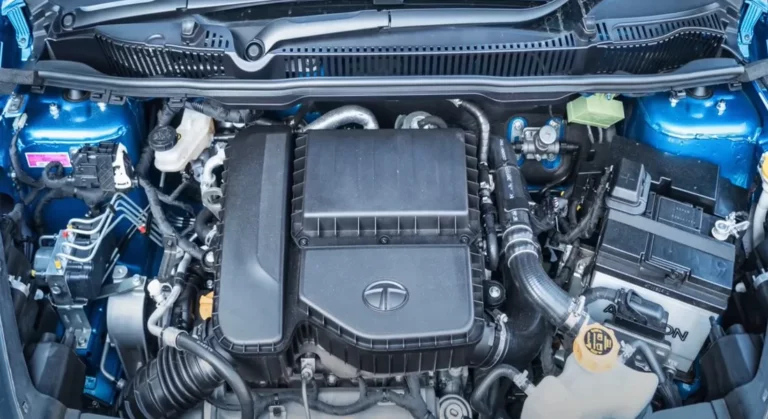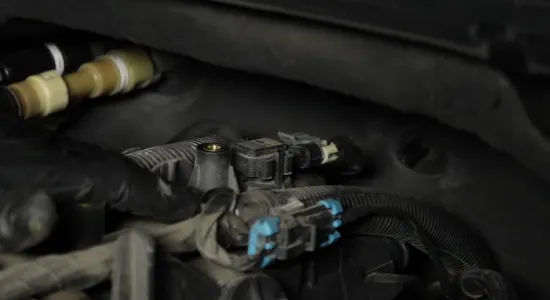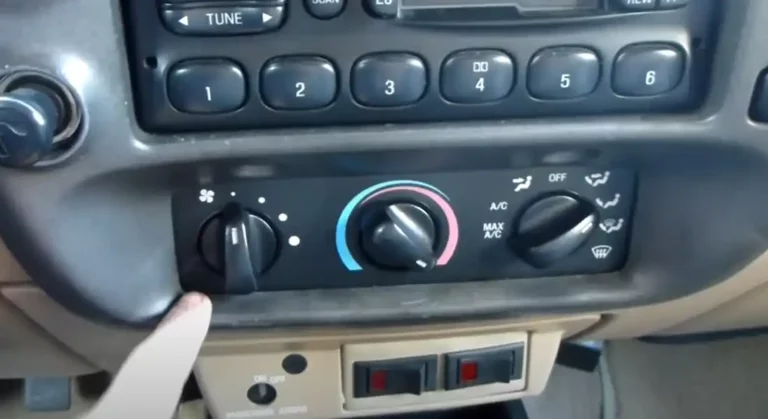Why Does My Car Take So Long to Warm Up? Causes & Solutions
A properly functioning car engine should reach its operating temperature within a few minutes of starting the vehicle.
But if your car is taking a decent amount of time to properly warm up, then it is normal to think why the car is taking so long to warm up.
There are many underlying factors for a car not warming up properly such as faulty thermostat, insufficient coolant, wrong thickness of the oil, etc.
Here, we will discuss each and every one of them, along with solutions that will help you to take care of those issues for good.
7 Reasons Why Does My Car Take So Long to Warm Up

Here are some of the most common causes why a car might take longer to warm up than others:
#1- Faulty or Damaged Thermostat
This problem is usually found during the cold weather. The thermostat is a valve that controls the flow of coolant between the engine and the radiator.
So, when it is stuck open, coolant continuously circulates through the radiator; this cools down the engine and thus stops the engine from reaching its operating temperature optimally.
On the other hand, if the thermostat is stuck closed or partially closed, coolant flow gets restricted, which results in the engine heating up slowly.
How to Fix This
Start by letting the engine cool down completely. Then find the thermostat housing locatedaround the engine’s upper radiator hose. Remove the housing and inspect the thermostat to look for any faults or damages.
If you find that the thermostat is stuck open or damaged, it needs to be replaced with a new one. You can opt for repair, but most of the time, repairing is a temporary fix with thermostats.
Once the new thermostat is installed, secure all connections andrefill the coolant system with the coolant mixture. Then start the engine to confirm that the issue is resolved.
#2- Low Coolant Level
Coolant plays a crucial role when it comes to engine temperature. If the coolant level is too low, then there isn’t enough fluid that will adequately absorb and transfer heat from the engine.
Thus, the engine takes a much longer time to heat up.
How to Fix This
The fix for this problem is quite simple. Just fill up your coolant tank, and you will be fine.
That being said, there are some factors that you should keep in mind. First of all, ensure that you are using the right type of coolant for your car. If that is not the case, then your car warm-up issue won’t be fixed.
Second, look out for leaks. Maybe that is the reason for the low coolant level leaks. If that is the case, then fix the leak first and then proceed to fill up your car with coolant.
#3- Imbalanced Coolant Mixture
The purpose of the coolant mixture is to ensure proper heat transfer &stopthe freezing or boiling of the coolant.It is usually a mix of water and antifreeze. If this mixture is imbalanced, then it can affect the warm-up time.
Most vehicle manufacturers recommend a ratio of 50% antifreeze and 50% water. The mixture affects the engine heating negatively when the amount of antifreeze is higher than the amount of water.
How to Fix This
First, figure out the recommended coolant mixture ratio for your specific car model to fix this issue. Consult your car manual or contact a professional.
Drain out the existing coolant from the engine block& radiator. Refill the coolant system with the new mixture, making sure it reaches the recommended level.
#4- Harsh Cold Climate
If you live in an area with rigid winters and frequently experience sub-zero temperatures, then it’s natural for your car to take longer to warm up.
Cold weather conditions significantly impact the warm-up time of a vehicle. In extremely low temperatures, the engine will have to work harder to generate heat, that’s why the warming-up process takes a longer time.
So, if you are experiencing long warming up time just in winter or during cold weather, then it is not a fault in your vehicle. It’s the surrounding environment. Older car models suffer from this the most.
How to Fix This
Keeping your car in a garage or a sheltered area with a balanced temperature with minimal exposure to the cold is the best solution for this problem.
This can help maintain a slightly higher ambient temperature around the vehicle and aid in the faster warm-up.
You should also opt for a block heater, which is designed to preheat the engine, reducing warm-up time in cold weather.
#5- Improper Thickness of the Engine Oil
If you see a warm-up time delay after changing the engine oil, you might have used the wrong amount of thickness.
The thicker the oil is, the longer it will take to circulate through the engine and reach operating temperature.
The manufacturer always specifies oil thickness grade, so follow the guide that comes with your car and pick the right engine oil.
How to Fix This
First,drain the existing oil from the engine and replace the oil filter. Thenrefill the engine with the recommended oil grade for your car. Also, ensure that you are filling the tank properly. Don’t overfill it, though.
#6- Temperature-Related Engine Problems
Various enginetemperature-related issues can contribute to adelayed warm-up.
For example, a malfunctioning temperature sensor sends inaccurate readings to the ECU, making incorrect fuel delivery.
Also, a damaged fuel injection system or clogged fuel filter can hamper the combustion process and slowing down the warm-up.
How to Fix This
To fix the engine’s temperature-related issues, you will have to first identify the problems and then fix them. Performing diagnostic tests can be extremely helpful in this case. Based on the result, you can take action.
We recommend that you take the car to a mechanic if you suspect there are some sort of engine problems that areprolonging the warm-up time of your car.
#7- It is the Engine’s Warm-up Time
The latest model of vehicles has been equipped with advanced engine management systems focused on reducing emissions & improving fuel efficiency. These engines require a longer warm-up time to reach optimal operating conditions.
So, if you have one of those models,it can just be a natural delay and nothing you should worry about. Consult your manufacturer for confirmation.
Too Cold in Your Car or Truck? 4 Reasons Why It Won’t Warm Up! >> Check out the video below:
Frequently asked questions (FAQs)
1. Should I use a higher antifreeze concentration in the coolant mixture to improve warm-up times?
No, using a higher antifreeze concentration can hinder heat transfer and result in longer warm-up times.
2. Should I cover the front grille of my car to help reduce warm-up time in cold weather?
No, covering the grille is not recommended because it will obstruct airflow and potentially cause overheating.
3. Will warming up my car for a long time before driving helps to reduce the warm-up time?
Not really. Extended idling is unnecessary and can waste fuel. Instead, allow the engine to warm up for a few minutes and then drive gently until it reaches its optimal operating temperature.
Final Thoughts
Many driversdon’t knowwhy their car takes so long to warm upand thus can’t fix the situation.
Unless it is a natural cause, if you let this problem sit idle, then you will be harming the engine efficiency and compromising the safety of your engine & other components. So be cautious and take care of your vehicle.



